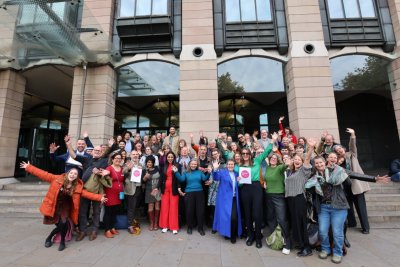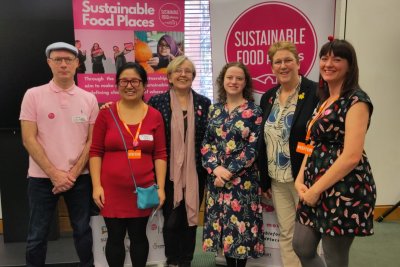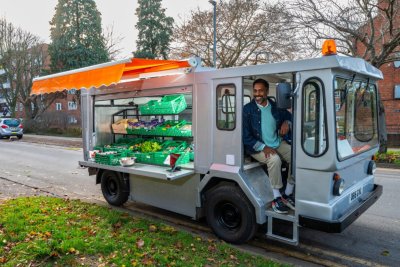 Girl in park. Photo credit: Pexels
Girl in park. Photo credit: Pexels

Time in nature helps children's mental health and wellbeing
Two thirds of children say "being in nature makes me happy" but the new research from Natural England also shows that the number of children who are playing outdoors without adults has declined dramatically over the past 50 years.
Natural England (who are part of the Sustain alliance) have released their latest Monitoring Engagement in the Natural Environment (MENE) report exploring young people’s attitudes towards nature.
Nearly three quarters of children experience nature (beyond their gardens, which are excluded from the survey) in urban parks and other kinds of green space, mostly in the company of adults. The number of children who are playing or being outdoors without adults has declined dramatically over the past 50 years and this is reflected in the MENE results which found only 18% of children (under 16) were outdoors in a natural environment without adults, and only 6% on their own. Being in nature clearly improves children and young people’s wellbeing, and two thirds of children under 16 agreed with the phrase that “being in nature makes me very happy”. Interestingly this figure dropped to 56% for teenagers and young adults - and this ties in with a general perception that teenagers become more removed from an interest in nature as other pressures crowd in on their time, focus and energy.
Poor children spend less time in green spaces
MENE researchers were able to explore social and ethnic differences - for example finding that children in poorer neighbourhoods were spending significantly less time in urban green spaces, as were children from BAME communities, especially those from Asian backgrounds - 73% of children from white British backgrounds were spending once a week outside in nature, compared with only 51% from Asian backgrounds - a startling difference. In households with dogs, children were consistently spending more time outside without an adult, than children in households without dogs, as you would expect. The difference is most marked for 13 year old children where 42% were making visits walking the dog, compared with 32% without dogs. At the same time the MENE survey is finding that visits by older children (aged 10-15) to nature, without adults, are decreasing at a surprising rate - down from 45% in 2013-14 to 39% in 2017-18. This may be partly due to parents’ concerns about safety, for example having to cross busy roads to get to the park. However it may also be due to children spending more time indoors, for example gaming or on social media.
Lack of urban green spaces
In a blogpost, Miles King, who runs the MENE project, says that the research raises the question of whether there is enough greenery in our cities and towns:
"The MENE results showing that children spend less time in nature in poorer areas may simply reflect the fact that there are fewer green areas in poorer neighbourhoods - and that Councils have less money to spend managing them - for example in ways which encourage more nature. Cash strapped councils are being forced to sell off more and more land and buildings to make up for the Central Government funding which has been withdrawn over the last 10 years - meaning that, at least in some areas, there are now fewer green areas for children to visit, or those that are available are neglected, making them less attractive. A similar impact is produced by schools being forced to sell off playing fields to pay for new buildings or cover budget deficits.
Better Food Britain: We want everyone to be able to enjoy food that is good for our health, produced in a way that supports good livelihoods, reduced waste and greenhouse gas emissions, high animal welfare and restoration of nature. Find out how.
Sustain
The Green House
244-254 Cambridge Heath Road
London E2 9DA
020 3559 6777
sustain@sustainweb.org
Sustain advocates food and agriculture policies and practices that enhance the health and welfare of people and animals, improve the working and living environment, promote equity and enrich society and culture.
© Sustain 2026
Registered charity (no. 1018643)
Data privacy & cookies
Icons by Icons8







